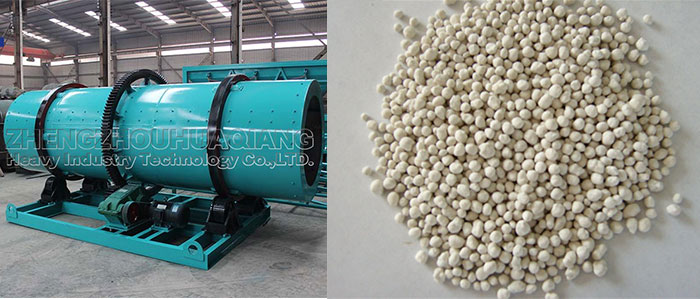
In modern organic fertilizer production, the granulation process directly affects fertilizer quality and market competitiveness. Rotary drum granulators have become essential equipment in organic fertilizer production lines due to their efficiency, reliability, and versatility.
1. High-Efficiency Granulation
Rotary drum granulators use a tumbling barrel principle to continuously roll and bind materials into uniform pellets. Their continuous operation enables large-scale production with high single-machine output, significantly boosting overall efficiency and meeting industrial-scale demands.
2. Strong Adaptability
Whether processing livestock manure, crop stalks, sludge, or microbial agents, rotary drum granulators can handle it. By adjusting rotation speed, tilt angle, and moisture levels, they ensure stable granulation—especially for high-fiber or high-moisture materials. This reduces pre-processing steps and lowers costs.

3. Uniform Granules
The pellets produced are rounded, strong, and resistant to breakage—making them easy to store and transport. Consistent sizing supports mechanized application, improves fertilizer efficiency, and meets premium market requirements.
4. Energy Saving and Eco-Friendly
Unlike extrusion or disc granulation methods, rotary drums use physical binding—requiring no high-temperature drying or chemical binders. This cuts energy use and chemical pollution, aligning with green production standards.
5. Smart Control
Modern rotary drum granulators feature automated systems that monitor rotation speed, moisture, and temperature in real time. This ensures stable, controllable granulation with minimal manual intervention, raising automation levels.
In short, choosing the right rotary drum granulator improves fertilizer quality, optimizes production costs, and supports sustainable business growth.